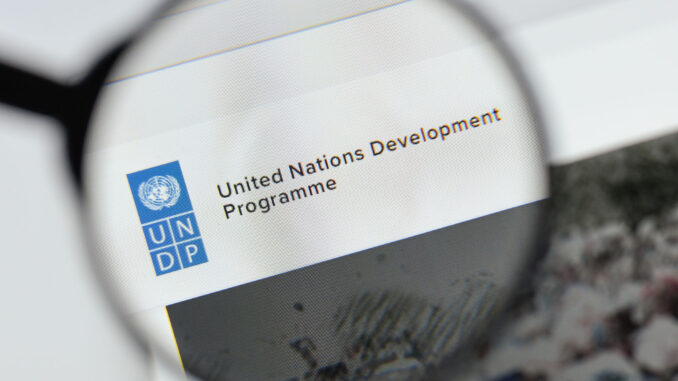
The UN development agency (UNDP)has published its governance framework for digital public infrastructure that it hopes all of its 190 plus members will align themselves with.
So again, another UN body has come up with a contested policy, basing it on the overarching one that’s supposed to provide it with legitimacy, namely the Sustainable Development Goals and Agenda 2030.

BYPASS THE CENSORS
Sign up to get unfiltered news delivered straight to your inbox.
You can unsubscribe any time. By subscribing you agree to our Terms of Use
Latest Video
InfoWars reports: Here, UNDP said in a post on its website last month that the digital ID framework was its reaction to “requests for institutional support” – and lauded its own effort as inclusive and based on (ostensibly, civil and legal) “rights.”
What is clear is that the UN is very committed to pushing the adoption of digital IDs, and does so at every available opportunity, the activities of UNDP included.
For those countries (rather, their current governments) who accept to follow UN’s lead on digital public infrastructure (DPI), of which digital IDs are but a part, reports say that the recommended framework has nine points: “legal, regulatory frameworks, non-discrimination, access to information, legal accountability, capable institutions, user value, procurement and anti-corruption, and data protections.”
The “Sustainable Development” agenda cited in this case has to do with civil registration at birth of every person born on the planet – and, apparently, making sure that’s digital, going forward.
What’s wrong with the current system? The UN thinks a lot, but at the same time wants to make sure that the digital versions developed and implemented by various governments have “adequate” – and indeed, “robust” governance in place out of the gate.
UNDP explains this with the need to make sure that standards and rules, as well as “privacy protocols” are all driving towards a future total digitization of public services.
So – UNDP’s ambition is to “centralize,” as it were, the efforts of hundreds of national governments by providing “a standard model.” It also states to seek to achieve something that frankly seems highly unlikely in the real world – but it sounds good in a press release.
Namely, “prioritizing individual rights” (lol) – human rights, as well as inclusion, etc. in this particular context – while still going forward with pushing digital ID adoption, or, “shift,” as the UN chooses to call it.


